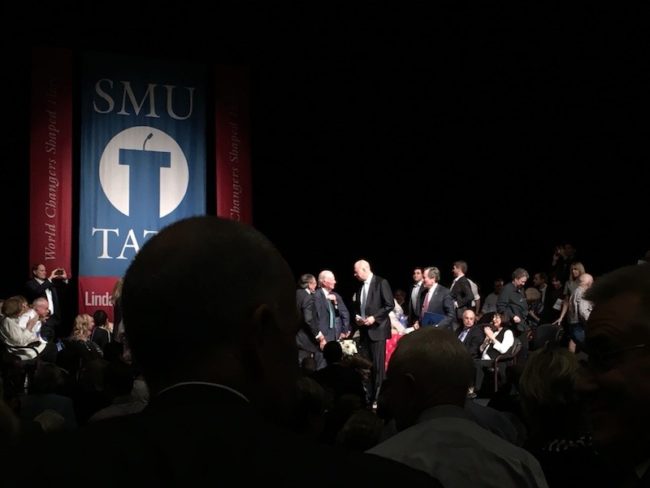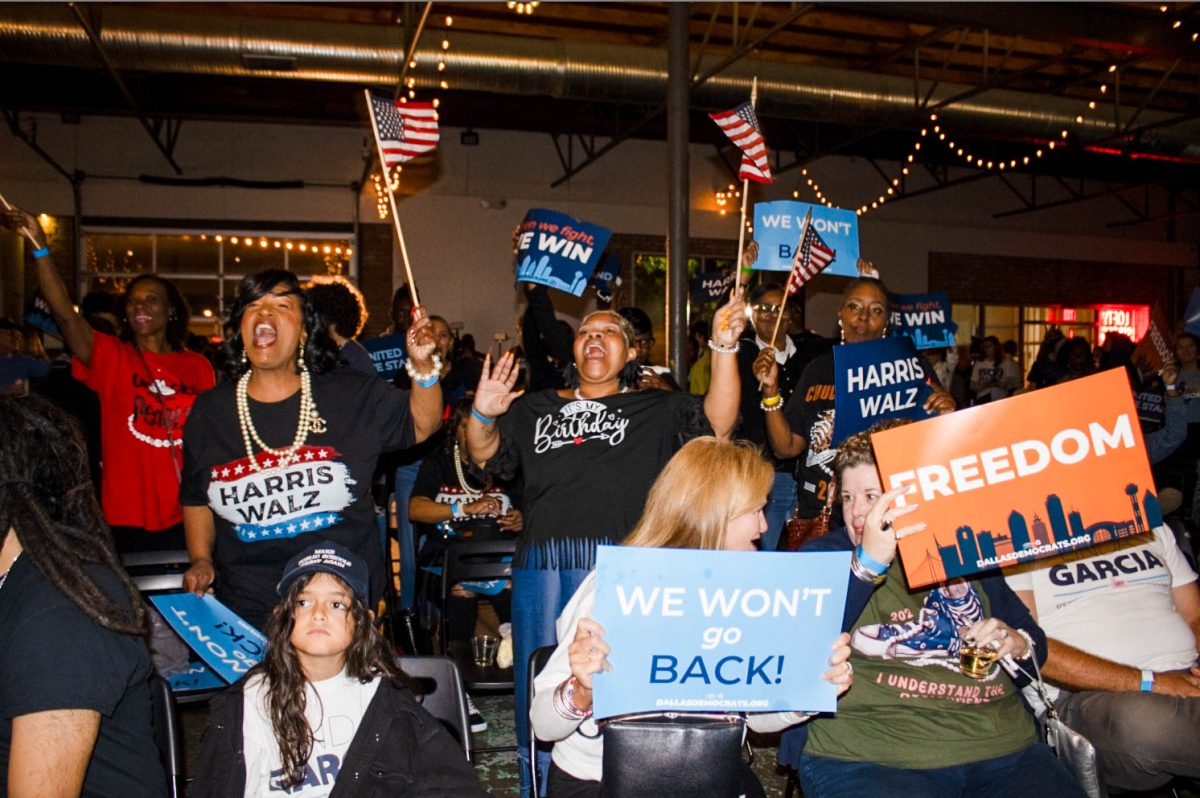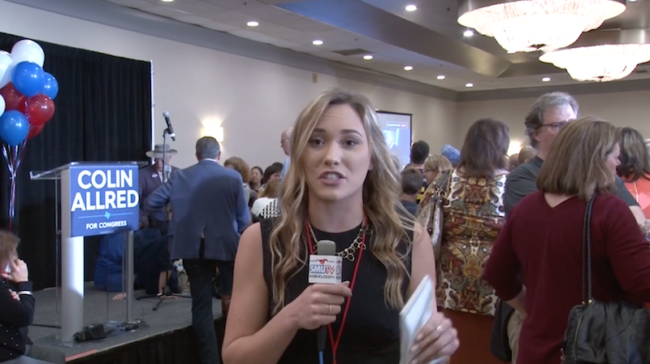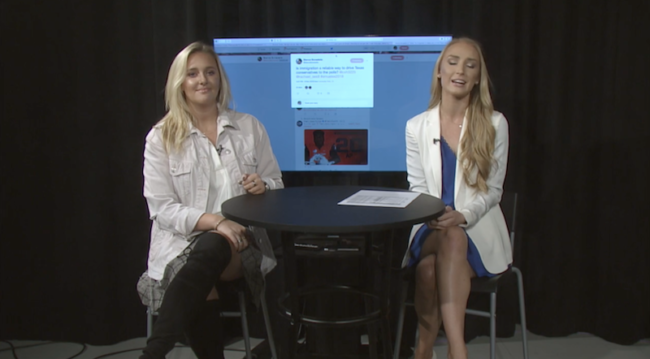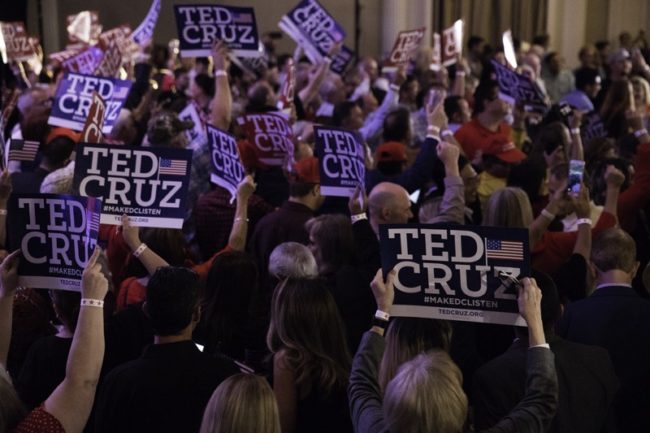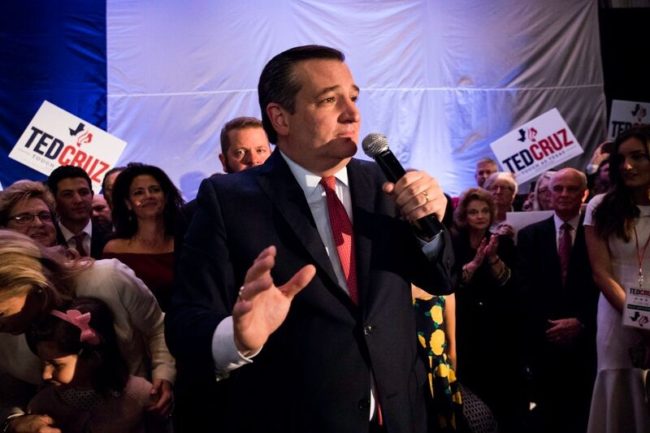James Baker III and Leon Panetta discussed bipartisanship, the Trump administration, millennials and the media in today’s political climate in the Tuesday Sept. 25 Tate Lecture in McFarlin Auditorium.
James Baker III spoke from his experience working with three presidential administrations–Ford, Reagan, and Bush. Baker served as White House Chief of Staff and Secretary of State under George H.W. Bush. He was also senior counselor to the Carlyle Group, a private equity and asset management firm known to heavily invest in the defense industry. Baker played an instrumental role as Bush’s special envoy in the economic restructuring of Iraq.
Leon Panetta, former CIA director and defense secretary under the Obama administration, is perhaps most known for his role in orchestrating the killing of Osama bin Laden. Panetta worked in foreign policy and on national security during the Clinton and Obama administrations.
Tuesday’s Tate Lecture was moderated by David Gergen, a political analyst and former White House adviser. Gergen asked the two statesmen about their views on the current political climate. Gergen started the conversation by joking, “If you are not confused, you don’t know what’s going on.”
On the current state of affairs, James Baker said, “We are in a country, sadly, that has extreme political dysfunction, and I think that’s one of the greatest threats to our democracy.” He attributes this dysfunction to strong political divisions that have caused the erosion of the “responsible and reasonable” political center.
Baker had recently written on this topic in an op-ed for the Houston Chronicle, titled “Civility and the lost art of listening.” Baker wrote, “During my 88 years on this earth, I have never seen a challenge as vexing and potentially damaging as the one now posed by the incivility that poisons our society. The crassness of our national debate and the political dysfunction that accompanies it too often bring our governance to a standstill.”
Baker also attributed this political dysfunction to institutions like the FBI and the media becoming too partisan. He said law enforcement “should never get political,” in reference to the FBI, and James Comey specifically. Baker stressed the media had deviated from its duty to objectivity.
“We have a press today that are no longer objective reporters of the facts. They are advocates, they are players in the game. That is not good for our democracy,” Baker said.
Still, Baker said he is not pessimistic about the future. He has faith in the American paradigm of free markets and democracy, one that he said has proven to be successful for many years.
Both Baker and Panetta spoke with nostalgia about their days in the White House, when they claim politicians from both sides of the aisle productively worked together to get things done.
Leon Panetta compared the current state of political affairs to his own experience.
“I’ve seen Washington at its best, and I’ve seen Washington at its worst,” Panetta said.
He spoke of the cooperation among political parties he had witnessed first hand and participated in, but said, “I have never seen Washington as bad as it is today.”
Panetta took specific issue with the Trump administration.
“The duty of the President of the United States is not to divide this country and undermine the fundamental values that this country is about,” Panetta said.
In reference to the president’s social media tendencies, Panetta said Trump dangerously “undermines stability” and shows no sense of strategy or long term planning.
“The problem in Washington today is that they are governing by crisis,” Panetta said.
Panetta suggested the cost was a loss of trust among the American people.
Gergen agreed there was extreme polarization among the American people, but suggested the division preceded Trump and was instead generational. Gergen said the WWII generation knew to put country before party, implying the difficult times had provided the American people with a sense of duty to country that is missing from young Americans today.
Gergen cited a poll that suggested young Americans are becoming increasingly dissatisfied with the notion of democracy.
“Polling shows that 71 percent of people born in the 1930s believe that democracy is essential to America. With people born in the 1980s, that number is down to 30 percent,” Gergen said. “A quarter of Millennials think democracy is a bad way to run this country.”
“I’m not being persuaded by some of the things that millennials believe,” Baker said in response to this poll.
Gergen added millennials were shifting in their support for the American democratic and free market system.
“Over half of millennials, if asked to choose between capitalism or socialism, over half say socialism,” Gergen said.
Baker accused educational institutions of “preaching” socialism. He joked it was “quite different at Southern Methodist University.”
All three on stage seemed to mourn the time in America they were in the White House, politics were more focused in the center, American capitalism had widespread support and the media refrained from adopting a political voice.



